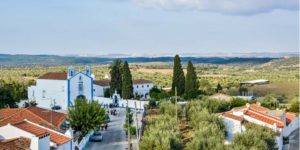Post-Congress Tour
 Aveiro, Portugal |
|
2024 POST-CONGRESS TOUR21 – 23 SEPTEMBER 2024 | SOLD OUT! The 2024 Post-Congress Tour will explore the rich culture of Northern Portugal in a relaxed atmosphere, highlighting Portuguese gastronomy, art, architecture and way of life. |
|
| * Please note that the information on this page may be subject to modifications. | |
21.09.2024 – Day 1 |
|
CoimbraA visit to the historic centre and the university square, followed by a quick tour of the ceramics collection of the Machado de Castro Museum. A city of narrow streets, courtyards, stairs and medieval arches, Coimbra has a vast and rich heritage. It was the birthplace of six kings of Portugal from the First Dynasty, and hosts one of the oldest universities in Europe, founded in 1290 by King Denis. It is also a city of hat makers, woven fabric sellers, tailors, boilermakers, rope makers, and potters, among others, and is one of the oldest and most important centers of pottery production in the country. AveiroLunch at the Palace of Congress, followed by a walk along the estuary and a visit to the Museum of Art Nouveau and DEMAC – UA (Department of Ceramics, University of Aveiro). Aveiro, city of inlets and canals, has had ceramics as part of its identity since prehistory. The Bairro das Olarias [the potteries neighborhood] in the Middle Ages, and the role of Aveiro as a production centre for sugar containers and amphoras for maritime trade, reinforces the historic relevance of ceramics. |
Aveiro is also unique in its the use of tiles, preserving items since the 16th century. Nowadays, Aveiro continues to be a national highlight in ceramics production, with factories and different type of production that explores innovative techniques. In the cultural scene, one can find the presence of artistic ceramics in public space (tile panels and ceramic sculptures) as well as historic and industrial heritage, but the greatest momentum is the International Biennial of Artistic Ceramics of Aveiro, which has been held here since 1989. ÍlhavoA visit to the Vista Alegre Complex that celebrates the 200th anniversary (Vista Alegre Historical Museum, Outer Factory, workers’ village, shops, Hotel de Charme (Palace) and Chapel of Nossa Senhora da Penha de França Ílhavo, informally known as the “city of the lamp” (a cidade da lâmpada) due to local legend, is a landmark of contemporary architecture and a stronghold for maritime tradition. The Museum of Vista Alegre is a symbol for national excellence on the fields of creativity, quality and entrepreneurship. It reminds not only the industrial heritage of this factory, but also the path of its working community, living in that which is one of the biggest, oldest and still-working European industrial neighbourhoods, where there is a lot to learn and to live. |
 Porto, Portugal |
|
22.09.2024 – Day 2 |
|
PortoVisit of Porto’s historic centre and river, followed by a visit of two IAC members’ workshops. Porto is both the city that provided a nation with a name and a fortified wine known world-wide: port. With its splendid geographical location on the mouth of the river Douro and an architectural heritage of exceptional quality, the historic centre of Porto was declared a UNESCO World Heritage site in 1996. Porto’s hard-working inhabitants are noted for their commercial enterprise, always standing firm against outside impositions and foreign invaders, which explains why Porto has become known as the “unvanquished” city. |
BarcelosGuided tour of the Museu de Olaria (IAC member), followed by a visit of the historic centre and typical potteries. The city is known for being the capital of Portuguese crafts and folk arts. The dynamics of its people are well reflected in the greatness of its handicrafts, with the Rooster of Barcelos being considered a major national symbol. “Barcelos crockery”, as it is commonly known, is an term that over the centuries spread and disseminated the name of this municipality, promoting employment and supporting hundreds of families that have built their lives around the arts of clay. |
23.09.2024 – Day 3Accommodation for this night (23 September) is not included in the tour. Accommodation arrangements are at the responsibility of the participants. See Pre-Congress Tour page for a list of centrally-located hotels. |
|
TondelaA visit to the Terra de Besteiros Museum. The region of Tondela is as one of the main areas of archaeological remains, which allow us to situate the life of prehistoric populations in different scenarios. It is through these traces that we can try to understand the “modus vivendi” of the inhabitants who have always aroused the curiosity of researchers. To go through the municipality of Tondela is to truly set out to discover history in its most beautiful aspects, from arts to landscapes and people, because in each place there are marks from other times also worthy of being admired: imposing manor houses with their beautiful coats of arms, churches, chapels, bridges and water mills. |
Of the architectural heritage with historical value in the municipality, some housing estates are worth mentioning, both for their grandeur and size, and for the history associated with them and their owners. Also worth mentioning are the pillories, representative marks of the local history and of the Portuguese political tradition defined in the charter. MolelosOpening of Soenga (firing of black pottery) and lunch al fresco at the Soenga site, served on black crockery. Visit of local “black potteries” (barro preto) and IAC member, Xana Monteiro’s studio. Located near Tondela, Molelos is known for their unique black pottery “Soenga”. |
 Terra de Besteiros Museum |
|
Registration fees & conditions
Online registration is now closed! Registration is now only possible on site.
(read more...)PROGRAMME
The Congress programme is now live.
(read more...)Pre-Congress Tour
The Pre-Congress Tour will explore Southern Portugal from 13 to 15 September.
(read more...)


